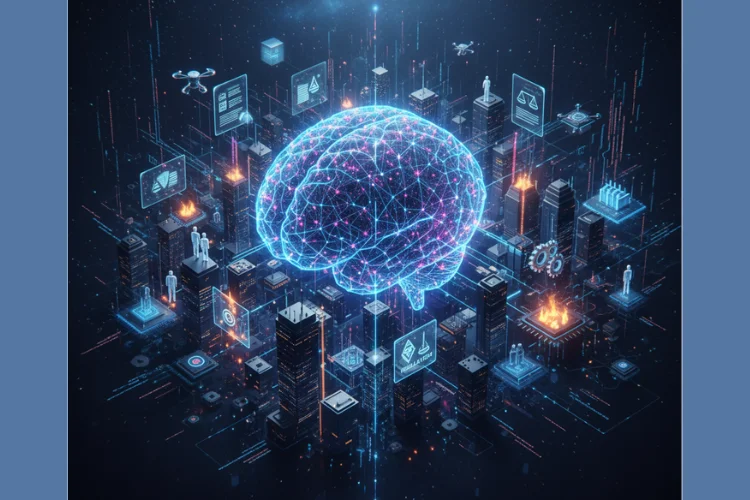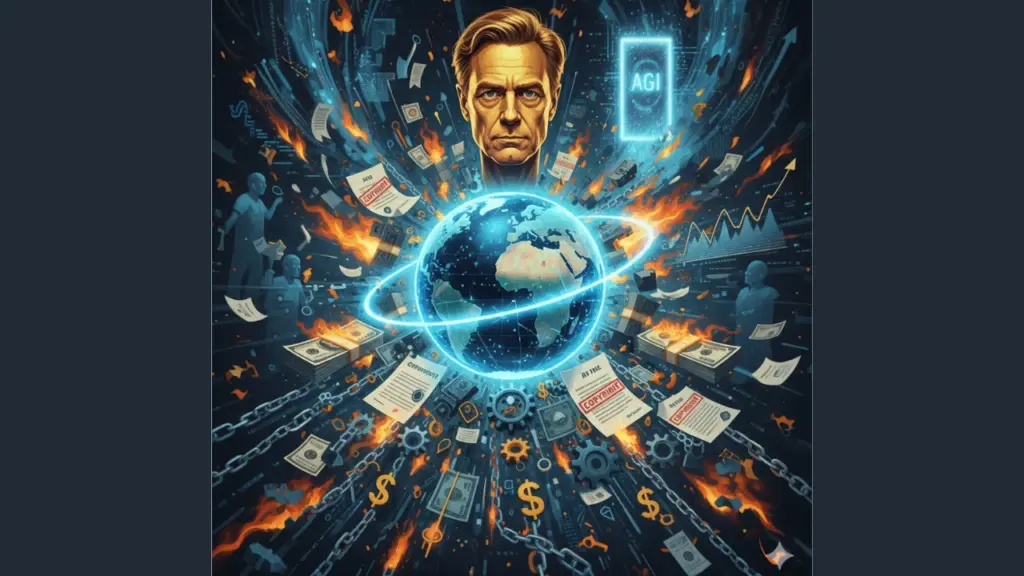1. Introduction: The Rising Storm Around OpenAI
OpenAI is once again at the center of controversy. The company’s latest project, Sora 2, was expected to redefine video generation with AI. Instead, it has become a lightning rod for legal and ethical debates. From copyright issues to questionable financial decisions, OpenAI faces growing criticism from developers, artists, and even its own investors.
CEO Sam Altman, known for his ambitious vision of Artificial General Intelligence (AGI), now faces mounting pressure over how OpenAI operates. His decisions—especially around spending and data usage—are forcing the tech world to question whether innovation is being pursued at the cost of integrity.
2. The Launch of Sora 2: Innovation or Intellectual Theft?
When OpenAI unveiled Sora 2, it was billed as a revolutionary leap in video synthesis. The model can generate cinematic-quality clips from text prompts, blurring the line between creativity and automation.
But beneath the applause came outrage. Artists and studios accused OpenAI of using copyrighted content without consent. The company’s opt-out system—where creators must manually request removal of their work—was seen as an aggressive move that ignored intellectual property rights.
Instead of prioritizing transparency, OpenAI positioned Sora 2 as a public experiment. This backfired, creating distrust among developers and media creators who felt their work was being exploited. Critics argue that OpenAI’s approach reflects a deeper issue: a focus on rapid growth over ethical responsibility.
3. Copyright Violations and Legal Fallout
The copyright chaos surrounding Sora 2 quickly evolved into legal threats. Major production houses and individual creators began exploring lawsuits. Their argument? OpenAI trained its models on protected content without proper licensing or attribution.
This is not the first time OpenAI has faced such claims. Similar allegations have been raised over ChatGPT and DALL·E, both accused of using copyrighted materials for model training. The Sora 2 controversy, however, has amplified scrutiny like never before.
Governments and legal experts are also weighing in, calling for tighter regulations around AI training data. While OpenAI defends its practices under “fair use,” legal experts warn that the company’s opt-out strategy might not hold up in court.
In contrast, rivals like Anthropic and Google DeepMind have taken a more cautious path, engaging with regulators and emphasizing transparency. This makes OpenAI’s approach look increasingly reckless in the eyes of the industry.
4. Sam Altman’s Leadership Under Fire
Sam Altman’s leadership style has always been bold. His goal to reach AGI before anyone else has driven OpenAI’s rapid evolution. However, this relentless pursuit of intelligence beyond human limits has led to risky choices.
Altman’s critics argue that he’s prioritizing AGI research over financial stability and user trust. From charging developers high event fees to spending billions on compute infrastructure, OpenAI’s direction seems to favor ambition over accountability.
Even within the company, concerns have surfaced. Employees and partners question whether the focus on AGI aligns with OpenAI’s original mission of ensuring AI benefits humanity. Instead, the company now appears more commercial and secretive—two qualities that conflict with its founding principles.
As a fractional CTO, observing this scenario offers valuable insight. Leadership in tech must balance innovation with responsibility. When a company grows faster than its ethical framework, chaos often follows. Altman’s choices highlight the importance of aligning vision with sustainable business strategy.
5. Financial Turmoil: Billions Burned in Pursuit of AGI
Behind the headlines, OpenAI’s financial story is equally concerning. Reports suggest the company spends billions annually on computing resources and research partnerships. Despite its massive valuation, profitability remains elusive.
OpenAI’s funding model relies heavily on investors who believe in the long-term payoff of AGI. But as losses pile up, even loyal backers are beginning to ask tough questions. The introduction of paid developer events and premium API tiers has sparked frustration in the developer community—many of whom feel OpenAI is monetizing access to tools that should be open and affordable.
This strategy may temporarily sustain revenue but risks alienating the very developers who built OpenAI’s success. In the long term, such financial decisions could undermine the ecosystem that fuels innovation.
A fractional CTO would likely recommend a more balanced approach—where innovation drives growth, not the other way around. Sustainable tech companies thrive when they prioritize long-term relationships with their developer base, not short-term monetization.
6. Impact on Developers and the AI Community
Developers are the lifeblood of any AI ecosystem. Yet, many now feel disconnected from OpenAI’s mission. Rising costs, limited transparency, and ethical doubts have made developers rethink their reliance on the company’s APIs.
Forums and community discussions reveal growing interest in open-source alternatives such as Mistral, Claude, and LLaMA. These platforms emphasize collaboration and accessibility—values OpenAI once championed.
The discontent doesn’t stop at pricing. Developers are also questioning OpenAI’s roadmap. Features that once inspired excitement are now met with skepticism, as more users wonder whether the company’s priorities align with the broader tech community.
This shift reflects a larger trend in the AI industry: the demand for ethical, transparent innovation. Developers no longer want just powerful tools—they want trustworthy partners.
7. The Broader Implications for the AI Industry
OpenAI’s Sora 2 saga serves as a wake-up call for the entire AI landscape. It highlights the fine line between innovation and exploitation. While OpenAI continues to push technological boundaries, it also tests the limits of legal and ethical tolerance.
Regulators around the world are closely monitoring these developments. The European Union, for example, is finalizing its AI Act, which aims to set global standards for responsible AI development. If OpenAI’s practices are deemed non-compliant, the company could face significant penalties and reputational damage.
The controversy also underscores a philosophical divide within the AI community. Some leaders advocate for open collaboration and ethical frameworks. Others, like Altman, prioritize reaching AGI first—no matter the cost.
In the coming years, the companies that survive will be those that balance both: technological ambition and social responsibility.

8. Conclusion: Innovation Without Integrity Is Unsustainable
The OpenAI Sora 2 controversy is more than a legal dispute—it’s a reflection of how modern AI companies are redefining the boundaries of innovation. Sam Altman’s determination to achieve AGI may be visionary, but without a foundation of ethics and transparency, even the most powerful AI can collapse under public mistrust.
For developers, creators, and investors, the message is clear: success in technology requires balance. Financial strategy, user trust, and innovation must align. The role of a fractional CTO is to ensure this alignment—to bridge ambition with responsibility, ensuring that growth is sustainable and ethical.
As OpenAI faces the consequences of its decisions, the global tech community watches closely. Whether the company can regain trust will depend not on how advanced its AI becomes, but how accountable its leadership remains.
At StartupHakk, we believe the future of AI should empower—not exploit—creators and developers. Because true innovation doesn’t just build smarter machines; it builds a smarter, fairer world.




